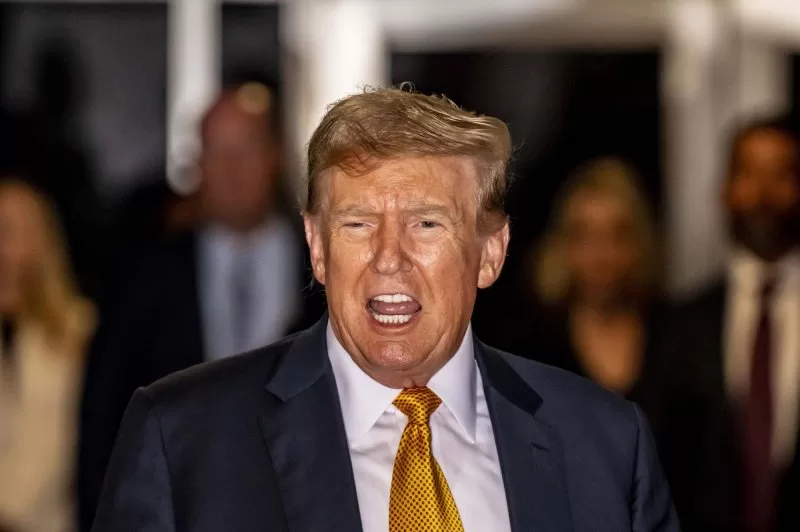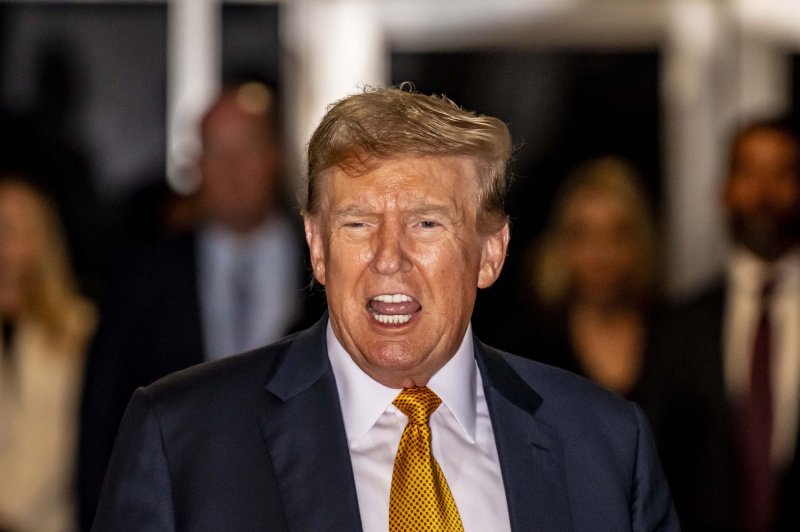Former President Donald Trump speaks to reporters at Manhattan Criminal Court in New York on Tuesday, May 21, 2024. He was booed while speaking at the Libertarian party’s national convention. Pool Photo by Mark Peterson/UPI |
License PhotoMay 26 (UPI) — Former President Donald Trump was raucously booed at the Libertarian Party’s national convention Saturday, especially when he called on the attendees to “nominate me or at least vote for me.” Trump left the stage after only 34 minutes, one of the shortest campaign speeches to date.
Trump is accustomed to largely supportive crowds at his events and basks in adulation from attendees, most of whom are often clad in red “Make America Great Again” hats and other Trump attire, and cheer loudly at Trump’s derisive comments of other candidates and everyday people, often nationalistic, and divisive and caustic statements.
The heckling began as soon as Trump took the stage at the event, which prompted the former president’s supporters attending to chant, “We want Trump.”
“Now I think you should nominate me or at least vote for me, and we should win together,” Trump said. “Because the Libertarians want to vote for me … and it’s very important because we have to get rid of the worst president in history,” he continued, referring to President Joe Biden.
The presumptive 2024 GOP presidential nominee continued to take swipes at Biden throughout his speech, and at independent candidate Robert F. Kennedy Jr.
In response to the booing from those at the Libertarian event, Trump jabbed members of that party too, even though they were hosting him, continuing to chide the party and cajoling them to vote for him this year.
“Only do that if you want to win; if you want to lose, don’t do that. Keep getting your 3% every four years,” he said, in reference to the 2016, Libertarian presidential nominee Gary Johnson, who won just over 3% of the popular vote. That was the highest vote total ever recorded by a Libertarian party candidate.
Trump’s speech to the Libertarians was unusual, and highlights the Trump camp’s growing concern over third-party candidates, largely because the election could be decided by narrow margins in a number of states, and Kennedy supporters, even if relatively few, could affect the outcome.

